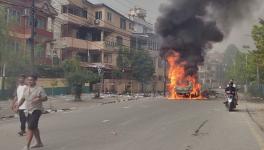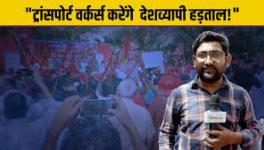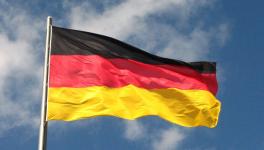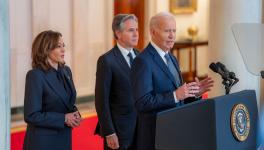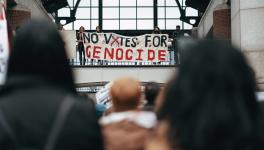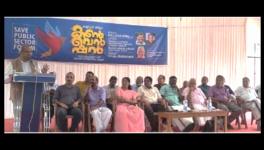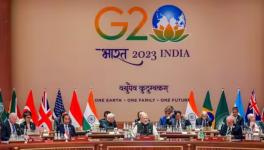Thousands of Workers Observe Nationwide Strike Against Taxation Hike in Sri Lanka
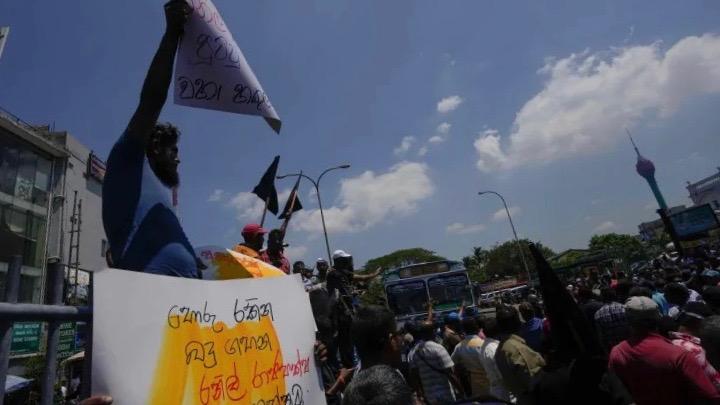
(Photo: via South Asia Times/Twitter)
On Wednesday, March 15, more than 40 trade unions in Sri Lanka called for a nationwide strike against the increased taxes imposed in the country as a precondition for a bailout by the International Monetary Fund (IMF).
Responding to the unions’ strike call, thousands of workers from the public sector— including railways, hospitals, schools, and ports—observed a complete shutdown. Rejecting the sharp increase in income tax and electricity charges, the workers said that no state intimidation (that previously banned all strikes under emergency laws) could stop them from supporting trade union actions in the country.
“Today, people across the state have taken to streets to protest against the oppressive and anti-people policies of the Ranil Wickremesinghe administration,” Wasantha Samarasinghe, a trade union leader, was quoted as saying by the South China Morning Post.
A number of academics from the Federation of University Teachers’ Association (FUTA) and other workers, such as doctors and lecturers, also supported the demonstration against President Ranil Wickremesinghe’s government’s move to privatize state assets and increase taxation from January onwards.
“We’ve come out to the streets today to call for more competent solutions to the economic crisis in Sri Lanka that the state perpetuated—selling state assets is not the solution,” Deevakara Athugala, a Sri Lanka Insurance Corporation employee, was quoted as saying by Ground View.
Already grappling with a worsening 73% inflation rate and essential commodity shortage, the protesting workers have accused the government of failing to address the concerns raised by trade unions.
The workers state that they will be left with no option but to extend their strike indefinitely if the authorities didn’t roll back their new income tax policy, which is widely seen as an attempt to appease the IMF to secure a bailout loan.
On March 20, the executive board of the IMF is scheduled to decide on a rescue package of USD 2.9 billion that remains in the pipeline. The government, however, has justified the increase in taxes as a prerequisite to strengthen state revenue and the increase in electricity charges as a means to cover the cost of production. Last week, President Wickremesinghe informed the parliament that difficult reforms were needed to remain on course with the IMF package.
For over a year, Sri Lanka has been reeling under a severe economic crisis, marked by shortages of essentials like food, fuel, and medicines. The country sought the help of the IMF after it defaulted on its USD 46 billion foreign government debt last April.
Under the presidency of Wickremesinghe—who has been in power since July 2022 and has governed with an iron fist, scuttling dissent and arresting activists—the tax burden has been shifted on to the working classes, who have been forced out into the streets to safeguard their basic rights.
Get the latest reports & analysis with people's perspective on Protests, movements & deep analytical videos, discussions of the current affairs in your Telegram app. Subscribe to NewsClick's Telegram channel & get Real-Time updates on stories, as they get published on our website.









